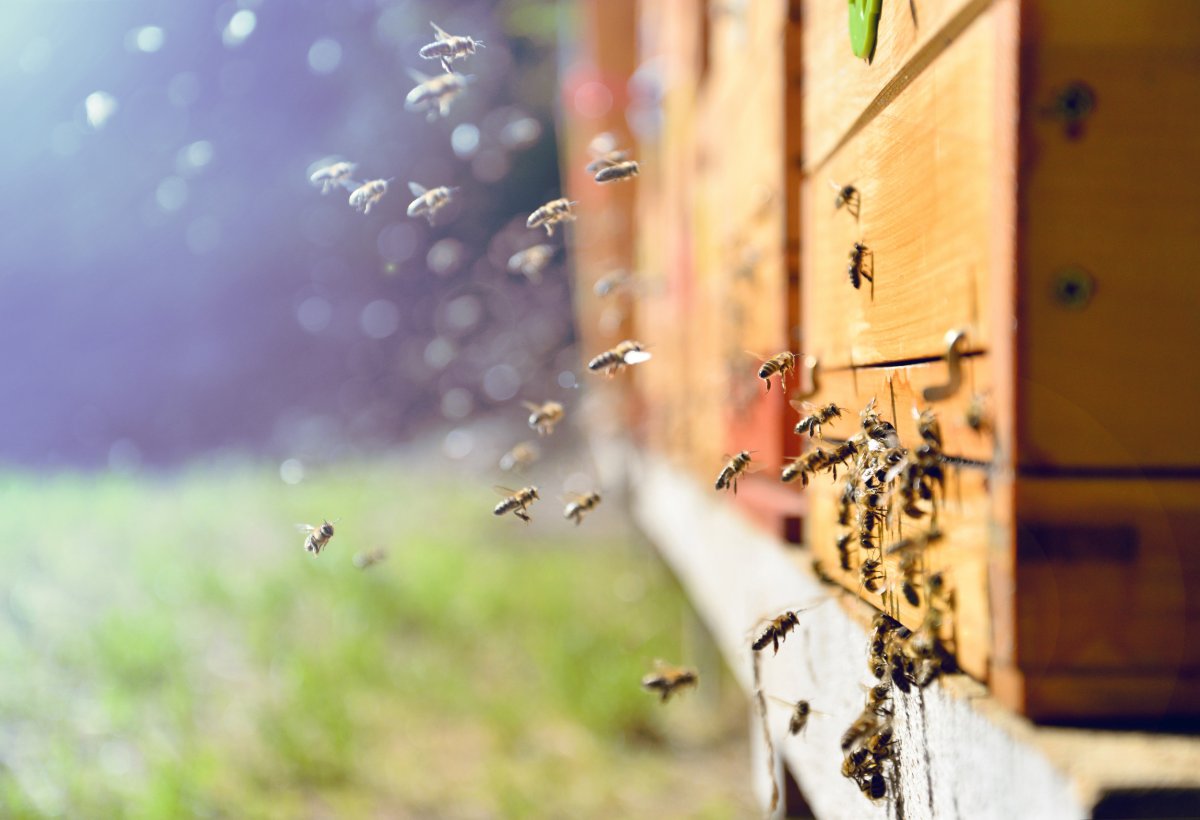Around 400,000 bees that were stolen from an estate in a rural part of the U.K. have started to escape and are now making their own way home.
The bees were stolen from stately home and hotel Tresillian House in Cornwall on the night of June 11, with the thief removing five hives, each containing 80,000 bees, from the property.
The stolen bees have gradually started turning up back where they came from, and beekeepers are re-homing them in new hives as they arrive. Assistant beekeeper Kathrin Barnes told local news site the Falmouth Packet that she thinks that the bees must be close by.
"They will probably all come back if they are chasing after a smell, that's our hope," she said. "If bees are moved less than a mile they go back to where they were before."

Bees have a very good sense of direction. Despite only having a brain the size of a grain of rice, when foraging, they use fragments of what they see on their outward flight to determine how far and how fast they have traveled.
They use the position of the sun to navigate, and can see ultraviolet light, enabling them to know which direction the sun is in at all times. They can also use smell in short-distance navigation, smelling the pheromones of the bees between them and their queen to create a "global map."
As a result of these navigational skills, officers suspect that all 400,000 bees were being stored locally.
In a statement from Devon & Cornwall Police, Police Sergeant Steve Applewhite said: "This crime is of concern as not only has it meant that a person's property has been stolen, but as a beekeeper myself, I am also concerned for the welfare of the stolen bees.
"We have been told that some bees have returned to the site where the hives were, before being stolen, this means that it is likely that these hives have been initially relocated or stored only a few miles away from Tresillian house. It would also take quite a large vehicle to carry a cargo of this considerable weight and it would be incredibly difficult to handle and carry alone."
The beekeepers are thrilled to have their bees back. Katie Barnes, wife of main beekeeper, Guy Barnes, said in a Facebook post: "Just [the day before they were stolen], we were inspecting them, getting excited about the progress and upcoming summer harvest. It's not just 80,000 bees per hive, it's dedication, care and commitment that goes into beekeeping. It's a responsibility."
"They are such an important part of our local ecosystem. For beekeepers it's a labor of love and it's ten years' work," Barnes told the Falmouth Packet.
Barnes believes that the thief must have been another beekeeper as hives are heavy and tricky to transport and handle.
''You'd need to know what time of day to get them, have multiple people, and have a vehicle big enough to transport them," he said. "It might have been for the money, but I don't know. Unfortunately my gut feeling is it's another keeper."
Uncommon Knowledge
Newsweek is committed to challenging conventional wisdom and finding connections in the search for common ground.
Newsweek is committed to challenging conventional wisdom and finding connections in the search for common ground.
About the writer
Jess Thomson is a Newsweek Science Reporter based in London UK. Her focus is reporting on science, technology and healthcare. ... Read more
To read how Newsweek uses AI as a newsroom tool, Click here.








